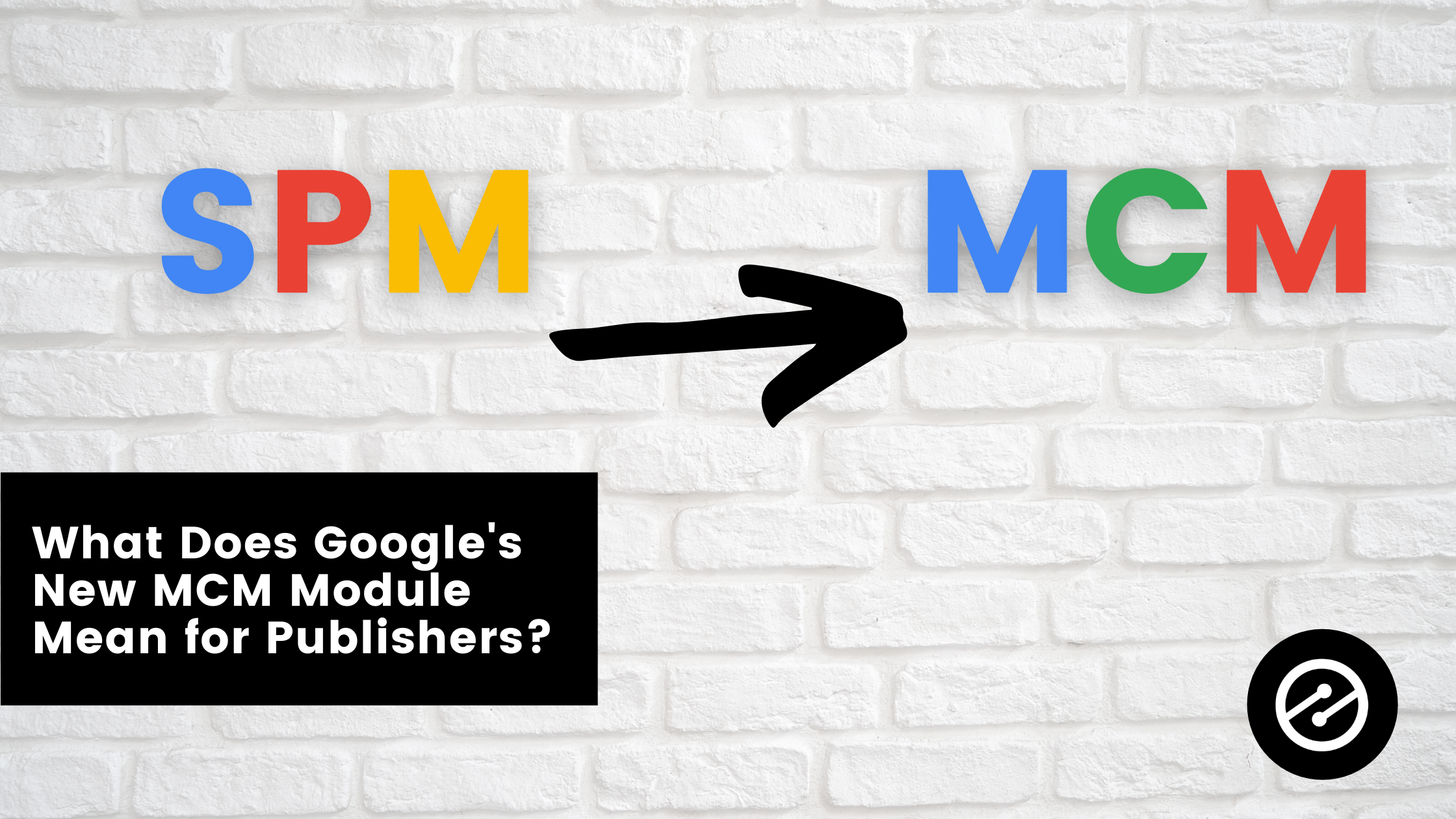
What Does Google’s New MCM Module Mean for Publishers?

Get helpful updates in your inbox
Google has announced that they’re rolling out a new program for all Google Ad Manager (GAM) users, and that includes you, Ezoic publishers.
Multiple Customer Management (MCM) will be replacing the Scaled Partner Management (SPM) module with a deadline of January 31, 2022. A transition period is currently happening.

At Ezoic, we’re a part of the MCM beta program so we’ll help with the new shift.
Publishers, don’t fret. We will provide instructions and clarification for any steps upcoming.
If you would like to watch a video on the move from SPM to MCM, watch below.
What is MCM?
Google’s new module stems from creating a more sensible relationship between publishers and publishing partners. This is the Multiple Customer Management.
A large purpose is providing visibility. Its thought is to give the same features to everyone as SPM. The area of distinction is giving advertisers the power to see exactly where and how their inventory is being sold.
The problem before was that advertisers couldn’t see into granular detail the child publishers that were under a management.
MCM is a part of Google’s broader initiative to help clean up the industry by eliminating spam and increasing the amount of high-quality traffic flowing to advertisers.
What is SPM?
Scaled Partner Management is what Google was using before the MCM module. And as you’ll find out, it’s very similar, and is the basis for MCM.
Google’s Scaled Partner Management (SPM) was a program created for small publishers to access Google Ad Exchange.
Since Google’s Ad Exchange has lofty prerequisites, publishers getting started tend to have trouble getting their foot in the door.
How SPM works is that it allows small publishers to partner with other larger publishing partners like Ezoic and use their ADX accounts for their needs.
Google SPM lets these publishing partners handle all inventory management and optimization on behalf of their customers, sometimes known as child publishers.
The takeaway is that everything goes through a single Ad Manager account that’s run by Ezoic.
What Does it Mean for Publishers?
With this upcoming conversion, some may be wondering if they will see any change to their existing sites. The answer is no.
To address concerns about safety and security, nothing will change for you. There will be no throttling, privacy issues, earnings adjustments, etc.
The main purpose of this is to provide more transparency on the exchange of ads between advertisers, Google, and publishers.
With Ezoic, you as a publisher will now have your own Ad Manager account while we are the managed partners and oversee the inventory.
We’ll notify you when you need to have this done, but if you’d like to go ahead and start the process, we highly encourage this. You can do this by visiting the monetization tab on your dashboard and filling out the MCM component at the bottom (pictured below).

The good news is we’ve seen a lot of our publishers are already transitioned so we encourage the rest to join!
If you’re new to Ezoic, you’ll need to be approved for an Ad Manager account. You’ll get an email from Google with the forms in order to apply. Be sure to use your Adsense email
Trust the Process
The transition from SPM to MCM will be seamless. Think of this as almost a necessary evil made by Google, but we’re making it easy for you and simplifying the process.
Ad tech is a space that’s constantly evolving. There will always be a continuation to move towards new best practices and standards.
In line with Google news, be sure to take a look at this new article on Lab, Field, and Origin Data. We talk about the differences between the data sets and how they impact Core Web Vitals.

Erik is a digital marketing and content creation expert. Erik has consulted and developed media for brands, earning accolades for his agile tactics and lean marketing approaches.
Featured Content
Checkout this popular and trending content

Ranking In Universal Search Results: Video Is The Secret
See how Flickify can become the ultimate SEO hack for sites missing out on rankings because of a lack of video.
Announcement

Ezoic Edge: The Fastest Way To Load Pages. Period.
Ezoic announces an industry-first edge content delivery network for websites and creators; bringing the fastest pages on the web to Ezoic publishers.
Launch

Ezoic Unveils New Enterprise Program: Empowering Creators to Scale and Succeed
Ezoic recently announced a higher level designed for publishers that have reached that ultimate stage of growth. See what it means for Ezoic users.
Announcement
